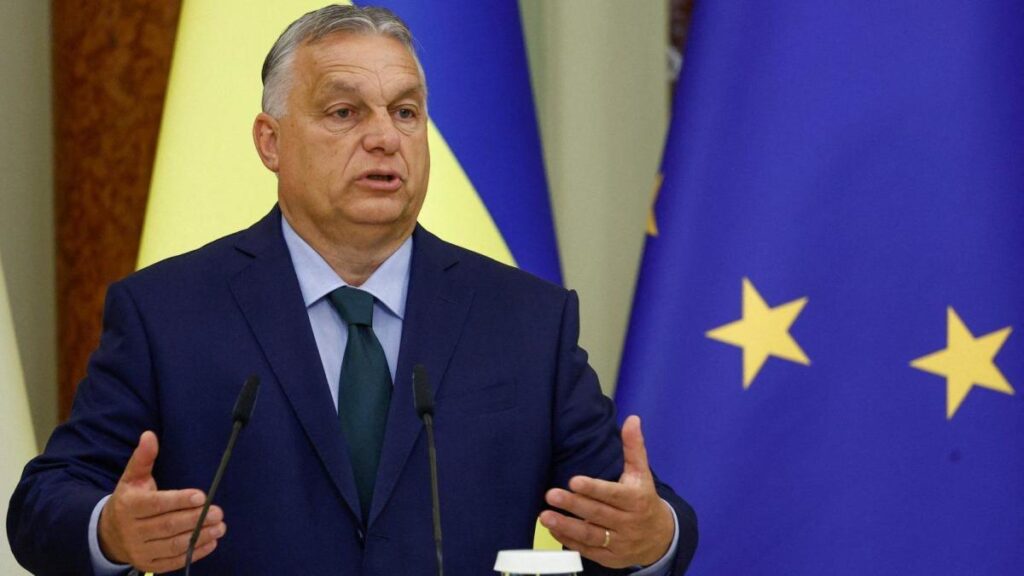Other EU leaders have expressed concern over media reports that Hungarian Prime Minister Viktor Orban may meet the Russian president. Vladimir Putin Friday in Moscow.
Orban, whose country now holds the EU’s rotating presidency, is the bloc’s only national leader to have maintained close ties with the Kremlin after its full-scale invasion of Ukraine in 2022.
President of the European Council Karel Michel said Orban “has no mandate to engage with Russia on behalf of the EU,” while Polish Prime Minister Donald Tusk asked for clarification.
Several media outlets reported on Orban’s upcoming visit, citing their sources.
Radio Free Europe/Radio Liberty, a US government-funded media organisation, cited a Hungarian government source. It also said Hungarian Foreign Minister Peter Szijjarto would accompany Mr Orban.
Hungary and Russia did not immediately respond to BBC requests for comment.
According to the AFP news agency, Orban promised “surprising news from surprising corners” on Monday.
In a post on X, Mr Michel wrote: “The rotating EU presidency has no mandate to engage with Russia on behalf of the EU.
“The European Council is clear: Russia is the aggressor, Ukraine is the victim. There can be no discussions about Ukraine without Ukraine.”
Mr Tusk asked: “Surely the rumours about your visit to Moscow cannot be true @PM_ViktorOrban, can they?”
Earlier this week, Orban visited Kiev and said that “a quick ceasefire could be used to accelerate peace negotiations”.
Ukrainian President Volodymyr Zelensky, who has a frosty relationship with Orban, has not publicly commented on the proposal.
However, many Ukrainians believe that any ceasefire would only tighten Russia’s grip on the territory it took from Ukraine. If negotiations were to take place, they would prefer to conduct them from a position of strength rather than from a position of restraint.
Media speculation about Orban’s visit to Moscow came after President Putin reiterated his openness to negotiations with Kiev.
The Kremlin leader recently publicly outlined a number of tough conditions for such talks, but Kiev and its Western allies say they amount to Ukraine’s capitulation.
Mr Orban has been an outspoken critic of Western support for Ukraine, having previously delayed agreement on a €50bn ($54bn; £42bn) EU aid package intended to support Ukraine in its defence against Russia.
Tuesday’s visit to Kiev was his first in 12 years, although he has met Putin several times in that time.
During the joint appearance of Orban and Zelensky, the body language between them was not cordial and neither of them answered questions from the media after making their statements.
But over the next six months, as President of the European Council, Orban will play an influential role as a figurehead for Europe.
On his second day in that role, he came to Ukraine for talks, indicating a need to resolve past differences and focus on the future.

